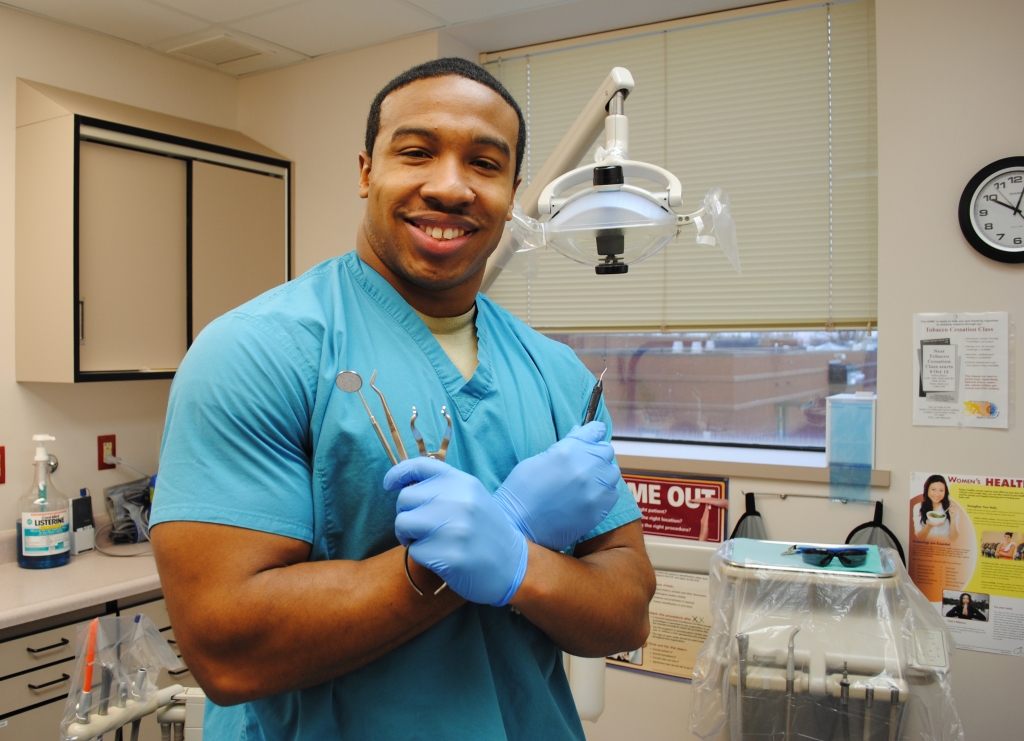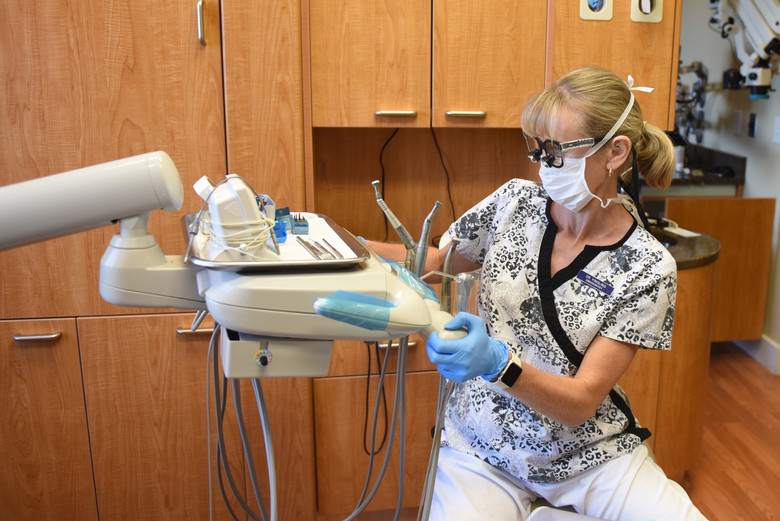Why see an endodontist? There are some dental issues that are better left to a specialist rather than a regular dentist. An endodontist is a dentist who specializes in problems with the soft tissue and nerves inside teeth.
An endodontist starts out with the same education as a dentist but then gets two or three more years of training to learn about endodontic care. One way to look at the differences between the two is that dentists try to keep teeth healthy and fix some dental problems. Endodontists’ goal is to save teeth that are in serious trouble. If you have a good working relationship with your dentist, he or she will be able to tell you when you need to see a specialist like an endodontist— and might even have one to recommend.
Seeing an Endodontist for Root Canal
The most common reason to see an endodontist is for a root canal procedure. At the center of every tooth, there is a space called a canal. Inside the canal, the root, made of soft tissue known as the pulp, and nerves, connects the tooth to the jaw, much like the roots of a tree hold it in the ground.
Sometimes, if the tooth has a cavity that isn’t filled, or is damaged in some way, an infection can get inside the root. When this happens a root canal procedure is necessary. The procedure involves drilling into the tooth, cleaning out the infected tissue, filling in the empty space, and capping the tooth off with a crown.
Dentists learn to do root canal repairs in dental school. They are perfectly capable of doing the procedure in their office. Sometimes, however, the problem with the tooth may not be straightforward. For more complex cases, the dentist will refer the patient to an endodontist. While dentists spend a lot of their time doing routine exams and filling cavities, endodontists spend the majority of their time fixing serious problems. That, coupled with their additional training, make them better equipped to handle tricky cases. Your dentist is the best judge of whether or not to involve a specialist.
One instance when an endodontist might be called in would be if the problem tooth is a molar. Unlike front teeth that have only one root, molars have two or more roots and canals. This can make it harder to find and clean out the entire infection.
Another reason to see an endodontist is if a root canal procedure needs to be redone. Sometimes, for various reasons, a root canal will fail. Perhaps a dentist didn’t get all of the infected tissue out and the infection continued to spread. Or a crown didn’t fit properly and allowed bacteria to get underneath. Whatever the reason, endodontists are often seen to have the procedure repeated and fix the tooth properly.
Root canal procedures are referred to as endodontic treatment or endodontic therapy. If a tooth’s infection goes too deep into the root, regular endodontic therapy may not work. The patient might need endodontic surgery instead.

Apicoectomy: When Root Canal Treatment Isn’t Enough
The name for endodontic surgery is an apicoectomy. Unlike a root canal procedure, where the endodontist drills down into the tooth from the top, with an apicoectomy, he or she goes through the gum.
The endodontist makes an incision in the gum, He or she removes the tip of the tooth’s root, along with all of the infected tissue surrounding it. They fill the end of the root and stitch up the gum with sutures. In some cases, the tooth might need a new crown to seal it off from further bacteria and decay.
Traumatic Injuries to Teeth
It is always an endodontist’s goal to save a tooth if possible. They perform treatments like root canal and apicoectomies to avoid having to pull teeth. Another area where they help is with traumatic injuries.
In the case of an accident or with a blow to the head or face, teeth might be cracked, chipped, broken off, knocked loose, or knocked out completely. An endodontist is often the best hope to save these teeth. They can assess the damage and determine the best course of action.
When teeth are cracked or chipped, the fracture often has hurt the root too. Endodontic treatment or surgery can repair the root and save the tooth. Once a crown is fitted, the tooth will look and feel just like the original.
A tooth knocked loose from its socket is known as a luxated tooth. Endodontists can reposition and stabilize a luxated tooth. In some cases, this treatment is enough. If the root was damaged when the tooth was dislodged, a root canal procedure might be necessary too.
Sometimes, a tooth is so damaged that it can’t be repaired. The most practical option might be to extract the tooth and replace it with a dental implant. Some, but not all endodontists provide dental implants to patients. They may be more likely to be referred to an oral surgeon or a periodontist for the procedure.
Endodontic Specialties
Only about 3% of dentists go on to become endodontists. Their additional schooling gives them a special skill set to help dental patients.
Endodontists are often the best choice for root canal procedures simply because of experience. They spend most of their time doing these treatments. A typical dentist might only do an occasional root canal, while an endodontist can do 25 in one week. There are extreme cases when it’s obvious to a dentist that the work should be done by an endodontist. For less serious instances, it is up to the patient. Since dentists have the skills necessary for a basic root canal, factors like cost, and working with someone they know and trust, become the deciding factors.
Endodontic specialists are also experts in diagnosing non-specific pain. Sometimes a patient’s tooth discomfort can be hard to explain to the dentist. The dentist might not be able to find any problem during an exam. An endodontist’s experience, combined with sophisticated equipment such as ultrasonic instruments and 3D-Xrays often gives them an edge when it comes to pinpointing exactly where the pain is coming from.
Root canal procedures can be uncomfortable (but not nearly as painful as believed), so pain management is important. Anticipating and treating pain is another way that endodontists excel.
When to See an Endodontist
When a patient has severe pain or sensitivity to hot and cold, there could be a problem deep inside the tooth. And if they suffer facial trauma and have swelling around the teeth or gums, there could be damage to the teeth and their roots.
If any of these problems occur, it is a good idea to visit the dentist as soon as possible. If they think you need to see an endodontist, they can refer you to one in the area. To look for an endodontist on your own, or If you don’t have a regular dentist, you can do a search using our online tool.
Seeing an endodontist becomes necessary when a tooth is in jeopardy. They are specialists at rescuing teeth from being extracted and restoring them to be good as new.


